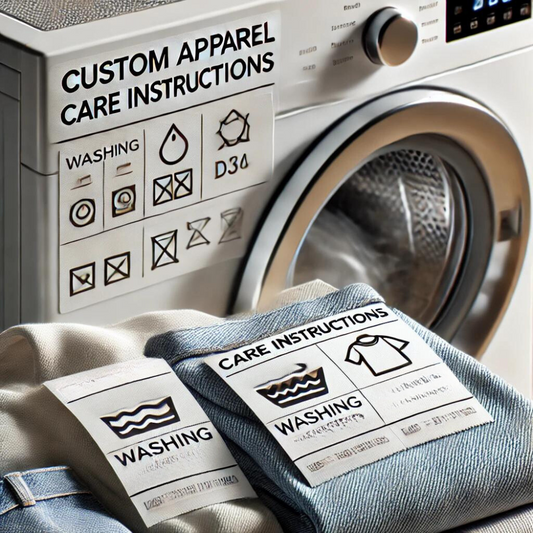Small apparel businesses are driving a significant transformation in the e-commerce realm, reshaping the landscape of both online retail and social media platforms. Through their innovative approaches, these small-scale enterprises are leaving a lasting impact on the industry. By leveraging the power of digital platforms, small apparel businesses are revolutionizing how consumers interact with brands, creating a more personalized and engaging shopping experience. Their ability to connect directly with customers and adapt swiftly to trends is reshaping the traditional e-commerce model, making them key players in the evolving world of online fashion retail.
Exploring the Emerging Power of Small Apparel Businesses
Small Apparel Businesses: Why They Matter
Small apparel businesses are more than just a trend; they represent a fundamental shift in the fabric of ecommerce. As nimble entities, they can react quickly to fashion trends, customer feedback, and market changes, often delivering a level of agility that larger companies can't match. Their size allows for a personal touch, crafting stories around their products that resonate with consumers on a more intimate level. Furthermore, these small businesses support local economies, create jobs, and often prioritize sustainable practices that appeal to a growing demographic of environmentally conscious consumers. The impact of small apparel businesses extends beyond transactions; they foster community, authenticity, and a spirit of entrepreneurship that enriches the e-commerce landscape.
Re-defining the World of E-commerce
The rise of small apparel businesses is transforming the e-commerce industry by introducing new shopping paradigms. Unlike the one-size-fits-all approach of traditional retail giants, these businesses excel in offering unique, often customizable products that cater to the specific tastes and needs of individual consumers. This level of personalization has elevated customer expectations for what online shopping can be. Small businesses are also pioneers in utilizing user-friendly platforms that streamline the purchasing process, making it easier for customers to find exactly what they're looking for. As they innovate, these businesses are setting new standards for customer engagement and service, effectively re-defining what it means to shop online. This shift towards a more curated and intimate shopping experience is shaping the future of e-commerce, prompting larger retailers to rethink their strategies to stay competitive.
How Small Apparel Businesses Stirring the Industry
Impact of Small Businesses on E-commerce Platforms
Small apparel businesses are not just participating in the e-commerce market; they're actively shaping it. Their presence on e-commerce platforms has encouraged these platforms to evolve, offering more support for the unique needs of small-scale operations. Features such as customized storefronts, targeted marketing tools, and integrated social media capabilities have been developed in response to the ways small businesses operate and market their products online. As these businesses prioritize direct communication with customers and value-driven shopping experiences, e-commerce platforms have adapted to accommodate these trends. For instance, platforms are enhancing their analytics and customer relationship management tools to provide small businesses with the insights they need to thrive. This symbiotic relationship results in a more robust and dynamic online marketplace, benefiting both the platforms and the diverse array of small businesses they serve.
Small Apparel Businesses and Social Media Magic
Social media has been a game-changer for small apparel businesses, providing a platform for them to showcase their products and connect with consumers on a personal level. By harnessing the power of platforms like Instagram, Facebook, and Pinterest, these companies are able to create visual stories that highlight their products' uniqueness and the values behind their brands. This storytelling approach not only enhances brand visibility but also fosters a sense of community among customers who share similar interests and values. Additionally, small businesses often utilize social media to gather real-time feedback, engage in two-way conversations, and provide excellent customer service. The magic of social media lies in its ability to humanize brands, making small apparel businesses relatable and approachable to the modern consumer. This intimate connection can translate into loyal customers and organic growth, as satisfied customers share their positive experiences within their networks.
Story of Transformation: Apparel to E-apparel
The Intricacies of Digital Marketing in Apparel Business
Digital marketing for small apparel businesses involves a multifaceted approach tailored to the digital landscape. It's not just about showcasing products; it's about creating a compelling narrative that embodies the brand's ethos. Effective digital marketing strategies include search engine optimization (SEO) to increase visibility, email campaigns that provide exclusive content and offers, and pay-per-click (PPC) advertising to drive targeted traffic. Additionally, content marketing through blogs and influencers can help tell the brand's story and reach potential customers. Each touchpoint is an opportunity to reinforce the brand identity and build trust with consumers. Small businesses must also be adept at analyzing data to understand consumer behavior and preferences, allowing them to adapt their strategies in real-time. The intricacies of digital marketing thus require a blend of creativity, analytics, and consistent engagement to stand out in the competitive apparel industry.
Evolution and Future: Where are Small Apparel Businesses Heading?
The path ahead for small apparel businesses is paved with innovation and adaptation. As technology advances, these businesses are expected to embrace new tools and platforms that enhance the online shopping experience. Virtual reality (VR) and augmented reality (AR) could revolutionize how customers interact with products online, offering a try-before-you-buy experience from the comfort of home. Furthermore, the push towards sustainability is likely to become even more pronounced, with small businesses leading the charge in ethical fashion and transparent supply chains. The future also holds potential for increased personalization through artificial intelligence (AI), which could tailor the shopping experience to individual consumer preferences. Small apparel businesses are poised to continue their growth by remaining flexible, customer-focused, and innovative, setting the pace for the e-commerce industry's evolution.




